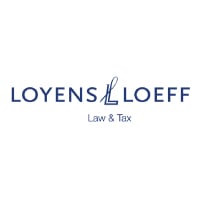

Senior Manager | CHC Helicopter




Ksenia Korneva
Senior Manager | CHC Helicopter
What are the projects that you are most proud of working on over the past 12 months?
One of the most complex projects I have completed recently was the refinancing of eleven helicopters located across six different jurisdictions. This multifaceted transaction involved a change of ownership and lease chain, making it particularly intricate. It required obtaining corporate approvals, securing the release and discharge of existing liens and related filings for each helicopter and engine, as well as drafting and negotiating sale, purchase, and lease documentation. We also handled local registrations reflecting the changes in ownership and leasing arrangements, and managed International Registry filings under the Cape Town Convention.
Each layer of the transaction presented its own challenges, but successfully navigating these intricacies across multiple jurisdictions was a significant accomplishment and a testament to the value of collaboration, attention to detail, and a solid strategic approach.
How do you approach managing legal aspects during periods of instability or crisis to ensure the organisation’s resilience?
Fleet transactions in the helicopter business are complex by nature. A helicopter is a mobile asset that frequently undergoes maintenance, with engines and components being replaced from time to time. It is critical to ensure that creditors’ rights remain protected even while these parts are in transit or being serviced.
Prior to any transaction, it is essential to identify the precise location of the asset and all associated parts at the time of closing. This affects numerous aspects, including the enforceability of creditor rights.
Preparing for, executing, and completing post-closing actions on a fleet-related transaction is far more than a legal process — it is an intricate logistical operation involving dozens or even hundreds of documents and countless details that must come together seamlessly. Any external turbulence significantly increases the challenge.
To manage this effectively, having a detailed action plan is essential. This plan must be clearly communicated across all teams involved, with regular check-ins to ensure everyone remains aligned. Agility is key — adjustments must be made immediately if circumstances change. Teamwork and the dedication of every individual involved are critical to the successful outcome of such projects.
Have you had any experiences during your career as a lawyer that stand out as particularly unique or interesting?
Having worked across various industries — including oil and gas, project finance, foodstuff trading, telecommunications, and aviation — I can say with confidence that telecommunications is one of the most challenging sectors. The high level of competition and often adversarial environment makes it difficult to pursue win-win solutions or maintain amicable negotiations.
In contrast, aviation has been the most collaborative and fulfilling environment. What sets it apart is the remarkable sense of ownership and mutual care demonstrated by everyone involved — from pilots and engineers to accountants and admin staff. People in this sector truly have “skin in the game,” looking out not just for their own teams but also for counterparties and even competitors. That’s why aviation, and particularly aviation finance, remains my favourite sector.
What do you think are the most important attributes for a modern in-house counsel to possess?
There are a few golden rules every in-house counsel should follow:
1. Understand your company. Know its needs, advantages, and risks, and keep this understanding at the heart of every decision.
2. Be deal-oriented. Use your knowledge to facilitate — not block — commercial agreements. Your aim is to get the deal done, not to derail it.
3. Be relevant. Only act on what is truly necessary. Other teams are focused on the business; don’t distract them with theoretical legal points that add no value.
4. Keep impeccable records. Maintain updated, well-organised, and confidential documentation. For example, ensuring that liens are discharged once a loan is paid off is critical in aviation finance.
Ultimately, an in-house lawyer must keep the company compliant, operational, and agile — ready to navigate a constantly changing landscape while protecting its interests and supporting its growth.
What is a cause, business or otherwise, that you are passionate about?
Aviation — without question. More specifically, aviation finance in the helicopter sector. Fixed-wing aircraft transactions are complex enough, but working with rotorcraft takes complexity to another level. It’s a field that constantly challenges and inspires me.